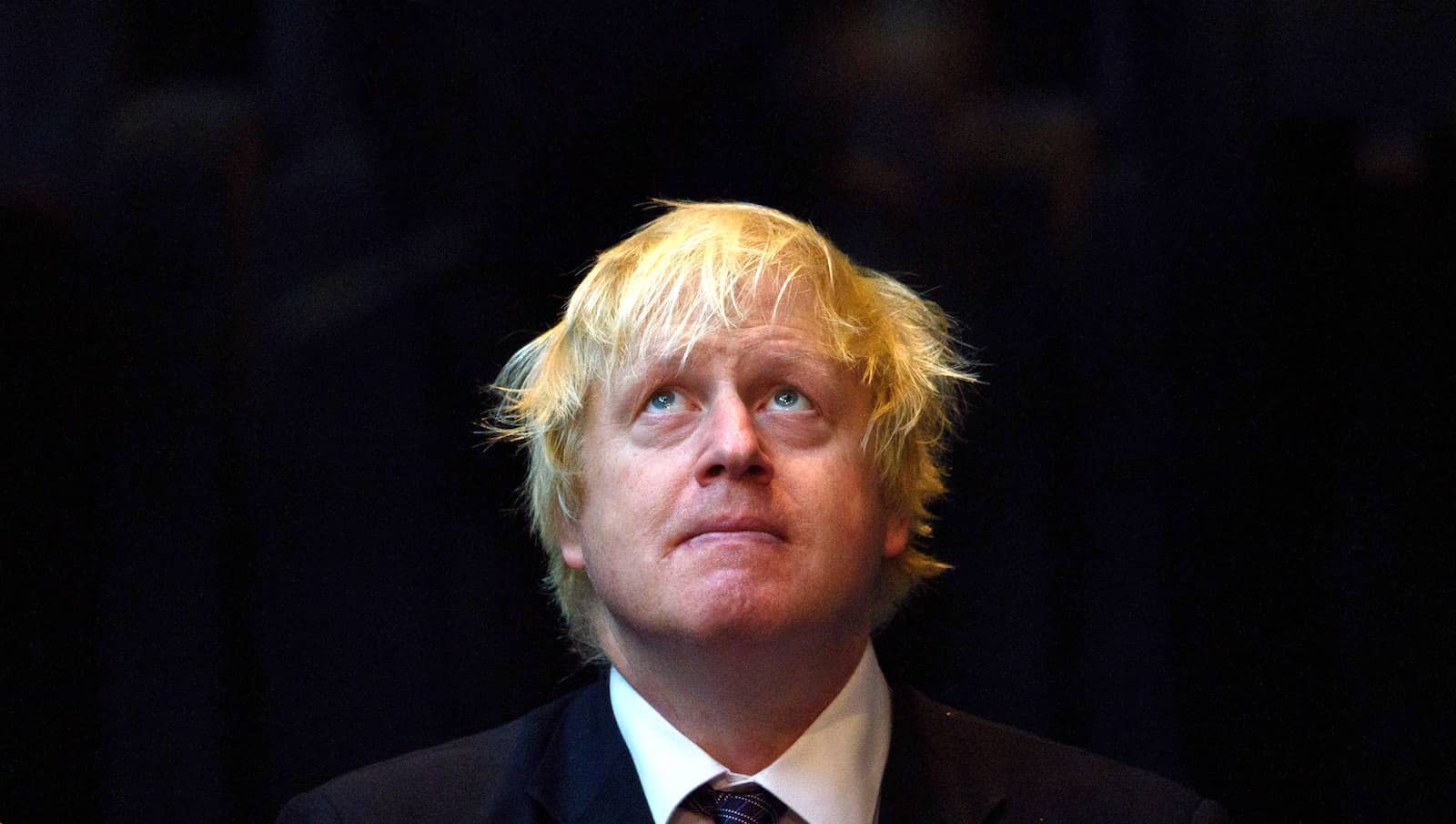People seem surprised and a little doubting that the Prime Minister is incapable of remembering if he attended a party in his own back garden in May 2020. It does not come as much of a shock to me, seeing as he has difficulty remembering how many children he has. Beneath that albino mop resides a brain comprising plasma in a perpetual turbulent flux, like you get in one of those tokamaks used in the pursuit of nuclear fusion energy. Except Boris’s brain does not have the correct-strength magnets to hold it all in place, just a skull. As a consequence he possesses no judgment and nothing in the way of principle, no capability for strategic vision and scarcely enough competence to get himself dressed of a morning. If what follows, then, seems to be an attempt on my part to shift the blame from my old employer and exculpate him from Nightmare on Partygate Vols I-IV, please be assured this is not my intention.
The attraction of Boris Johnson to the electorate was that he seemed ‘refreshing’ for a politician, a kind of village idiot waving around a pig’s bladder on a stick but somehow conversant in Latin. For the voters, choosing Boris was akin to the good people of Hartlepool electing a man dressed as a monkey as their mayor: an entertaining change and damn the consequences. That attraction, though, has evaporated and the sooner Johnson is gone the better, otherwise one day quite soon we will wake up to discover that David Lammy is our foreign secretary — an eventuality none of us, not even close members of Mr Lammy’s family, would find desirous.
Beneath that albino mop resides a brain comprising plasma in a perpetual turbulent flux
The defence for Johnson will be that while his day-to-day competence is parlous, he gets the ‘big things’ right — such as Brexit, winning an election and at last ignoring the mentalist shrieking from the medical dementors in Sage (for which we should all be grateful). But it is no longer nearly enough. The sense of entitlement which led him to believe he would be an absolutely super prime minister now repels the ordinary voter, and for good reason. Once you have removed Boris’s popularity with the electorate, you have removed the entire point to the man — and there is nothing left.
But all this being said, it was not Boris Johnson who invited 100 civil servants to a nice garden party in 10 Downing Street at the very height of lockdown, free sausage rolls and crisps, bring a bird and a bottle — it was a civil servant. More specifically a civil servant called Martin Reynolds, the PM’s principal private secretary, whose background I had entirely accurately guessed before I bothered to look it up: public school followed by Oxbridge.
Johnson’s sense of entitlement may grate, but it is the sense of entitlement within the public sector — and especially the higher echelons of the civil service — which is the real problem for this country. Martin thought a garden party would be a nice idea (and so, presumably did the 40 or so colleagues who turned up) at a time when ordinary people were barred by law from visiting dying or elderly relatives. It was a perfect expression of the divide in our country, between an endlessly entitled public sector which considers itself above the fray and a beleaguered private sector which pays for its existence.
A year or so ago I mentioned here the growing divide between these two sectors of our labour force — a divide which is economic, social and increasingly political (where the public sector has 13 per cent more Labour voters than the private sector). The number of public sector jobs grew during the first year of the pandemic (and has continued to grow), and while wages in the private sector decreased, those in the public sector rose. I suggested back then that we would emerge from this pandemic with a very buoyant public sector which would be resistant to cede its enormous advantages. So it has been proven, I think. The one group of people who above all else do not wish this pandemic to end are those who are paid by the public purse and who continue to demand more and more restrictions on our behaviour — knowing that while this may ruin the education of a generation of children and put plenty of firms out of business, their jobs and their privileges will remain secure.
The gap in wages between the two sectors persists every year and, depending on which measure you believe, the differential is either 13 per cent or 7 per cent. It used to be said that a career in the public sector was secure but comparatively low paid — not any more. Further, public sector workers enjoy both a shorter working week and an average of three more days of holiday per year than their counterparts in the private sector. They take many more days off sick than those in the private sector, too — 7.9 per year as against 5.5. And of course there are those whopping pensions and that comparative job security.
All of this is a consequence of a public sector which does not need to pay attention to those most vulgar of things, commerce and competition. Terms of employment can be extraordinarily generous because there is no commercial reason for them not to be. And so we have this section of the population — some 5.7 million people — who do not subscribe to the notion that money needs to be made and believe instead that we as a country cannot merely exist, but continue to pay hugely inflated salaries to people who are deeply reluctant to do any form of work. It is the voices from this sector which have been most strident in demanding lockdowns and restrictions, presumably because they believe that we can exist like this forever. That garden party was the perfect expression of a sector which has lost its grasp on reality.
This article is taken from the upcoming edition of The Spectator, out tomorrow.








Comments